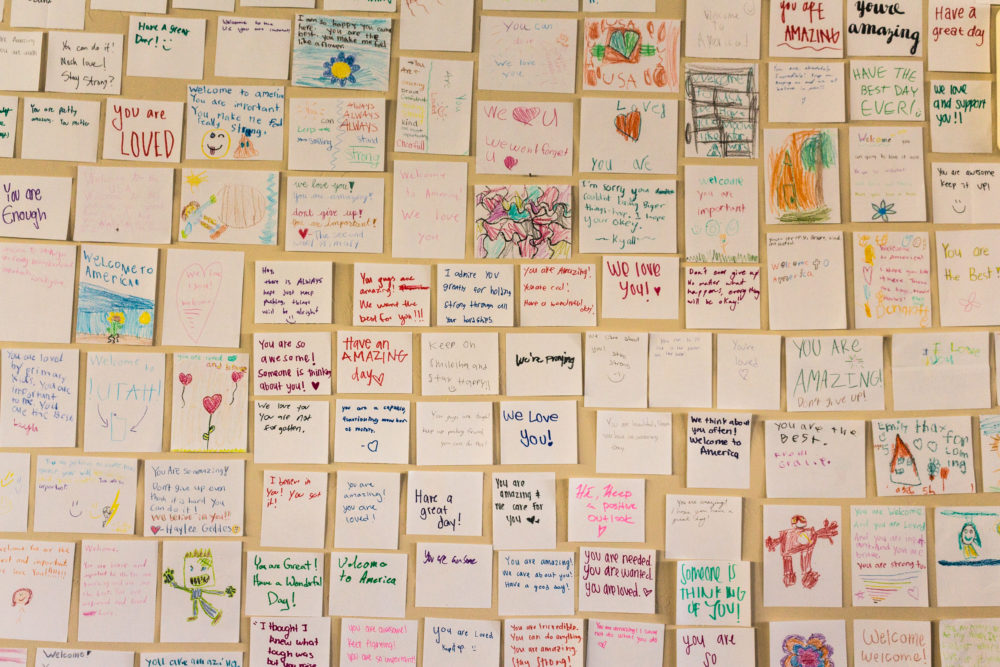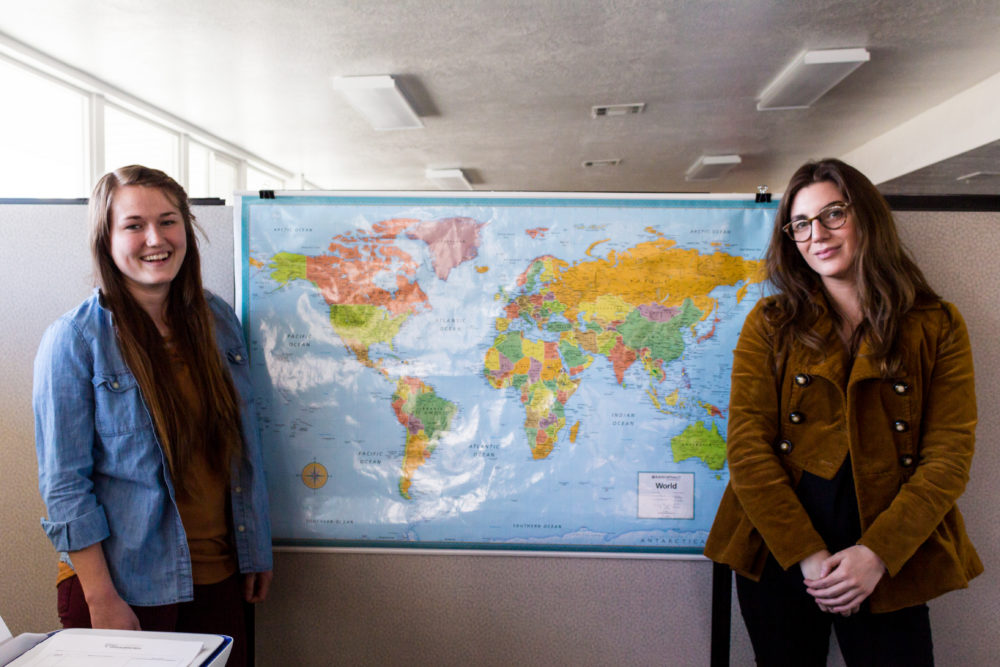Local non-profit offers aid to refugees living in Cache Valley
The Cache Refugee and Immigrant Connection is providing a place for refugee and immigrant families to receive help settling into Cache Valley.
This recent non profit is rooted in volunteer work and gaining ground as a reputable organization to help immigrants and refugees.
Nelda Ault-Dyslin, a founder of CRIC, realized that there was a problem in Cache Valley, and she had the skills to fix it. She had previously worked as a employment counselor with the Department of Workforce Services. She worked alongside refugee families in this position.
“We realized that no other organization in Cache Valley could do the services that I had previously provided. So we decided to make our own,” Ault-Dyslin said.
Along with Ault-Dyslin, the first hired employee was Julie Taquin. A dual citizen of France, Julie’s interest in helping refugees was sparked when she volunteered with the Red Cross in France. There, she helped many refugees with translations and paperwork.
“I moved to France because I wanted to get involved in this issue,” Taquin said. “I brought English and French to the table which was very useful. I was able to find my niche. I knew that I wanted to work with these people.”
Taquin acts as the programs and partnerships director for the organization.
“I oversee all the different kinds of programs. I work on grant writing and project proposals as well,” Taquin said.
Another employee of the organization is Melissa Brimhall. Brimhall is currently a Utah State University student, and acts as the Volunteer in Service to America and Volunteer Coordinator for CRIC. VISTA is volunteer in service to America and this position is funded through Americorp.
“I volunteered a few times here and then the position opened up. I have done some work abroad with international development and I was interested in seeing a local domestic side of the nonprofit world,” Brimhall said. “As volunteer coordinator, I run volunteer trainings, and get sign ups out. I work full time here at the office. It’s been an incredible opportunity. Being able to work in this role has taught me a lot about running a nonprofit.”
 Holley Stringham
Holley Stringham In Cache Valley, there are around 400 refugees. Taquin said, they come from five primary countries: Ethiopia, Eritrea, Myanmar, Sudan and Somalia. CRIC offers a variety of services to refugees and immigrants. Services include drivers license classes, citizenship classes, language tutoring, community garden and much more. Their newest program in progress is a neighbor program. This new program will pair a refugee family with a local family.
“We have had a lot of people pass the drivers license test in a short amount of time. Even for a English speaker that test is hard,” Taquin said. “We find that most refugees are interested in becoming American citizens. The gratitude they have for coming to this country is through the roof.”
Because CRIC is a non profit, they receive funding from outside sources. So far many of their funding has come from private donors in Cache Valley.
“People literally just contact us to gives us money,” Taquin said. I think it is just the nature of Cache Valley, people here are very aware of issues. We have been very fortunate to receive many donations.”
Taquin the refugees came to Cache Valley for the job opportunities. When refugees first come to Utah, they are restricted to Salt Lake CIty. Due to the large population of refugees currently living there, there is a lot of job competition. This drives them to other areas such as Cache Valley to find work where there is less competition.
“They come here to work, but lose all access to case work they have. This is where we step in as a organization,” Taquin said. “We are working with them to get them to the next level with English. It helps diversify their jobs options.”
The refugee crisis and immigration has been a hot topic in recent media. The CRIC organization realizes that there can be be many misconceptions and opinions on this issue and they hope to ease these misconceptions within the community.
“People should know that refugees don’t get sent to Logan. They come here voluntarily. They have different needs here. People think refugees need this and that. They really just need people’s time,” Ault-Dyslin said.
Ault-Dyslin said it’s easy for people to draw conclusions about people who are different than them. But if they take the opportunity to get to know somebody, it could open their eyes to a new a perspective.
 Holley Stringham
Holley Stringham “There is no free ticket to the United States. These people are fleeing the terrorists and all the conflict. I think people don’t ask enough questions and base opinions on fear. I think that if people continue to be open to learning about refugees it would get alot better,” Taquin said.
With all of this comes many opportunities for service and volunteers. CRIC is always looking for people to come join them in their various programs and classes. Volunteer trainings are hosted on the third Saturday of every month at 10 a.m..
“Any volunteer experience that you can get is worth it.” Brimhall said. “They have taught me so much more than I have given. It is worth the couple hours a week that you end up volunteering.”
CRIC has no plans on slowing down. The organization plans to hire full time staff and increase their programs, funding and services into the future.
“The community is super interested in being involved so we are trying to accommodate for everyone who wants to get involved. We are constantly staying up to date on services for refugees,” Taquin said.
To volunteer with CRIC and see what opportunities are available, appy at their website. For social media updates follow @cacherefugees
“I hope that refugees can feel apart of the community. We want cache valley to be a place where everyone, no matter their background can feel welcome,” Brimhall said.
— shelby.black@aggiemail.usu.edu
@shelbsterblack

